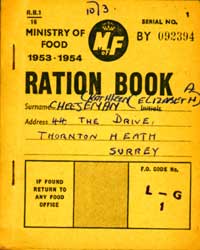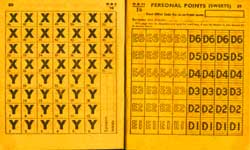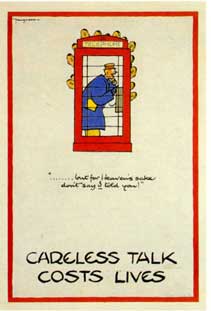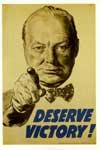

Click here to listen to Ivan Ball's and Stan West's first childhood impressions of the war.
These audio clips may take some time to download (about 90 and 200K respectively)
These allowed people to get small quantities of basic essentials - sugar, butter, meat and even sweets!



One resident recalls, as a child, looking out of the window watching the ARP practising using their masks - "All you could see was a huge head like that of a jumbo elephant". How frightening is that! Click here to hear this story.
Cecil Woodland recorded his childhood impressions of gas masks in his diary. Click here to read them,


Blackouts were enforced - and it ws a serious crime if you did not comply. Even the cars had them, as Cecil Woodland describes in his diary.
There was no street lighting and all the houses had to have blackout screens to prevent any light coming outside. Can you imagine how dark it must have been? Maybe this extract from Cecil Woodlands diary may help.


